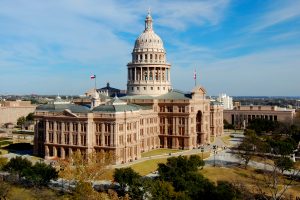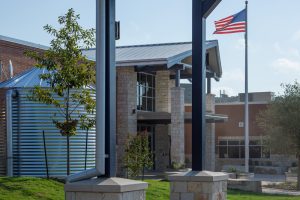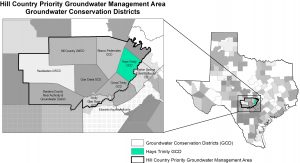Action Needed Now As 87th Session Heats Up!
|
QUICK LINKS: |
Watersheds across the state stand to gain from bills alive in an 87th Texas Legislature that enters its pivotal month-long run into May’s final stretch. Already, a number of bills yet to see any action since filing appear doomed, while some remarkably positive measures for water show real momentum.
Wimberley Valley Watershed Association works with partners in the conservation network each session to identify and follow bills of interest to members. Texas Legislature Online offers 24/7 access to these bills and updates as they move through the byzantine process toward becoming law.
How to Comment Online

Legislators need to receive input from constituents when bills are heard in committee. Testimony in person remains invaluable for its immediacy, but COVID-19 complications have been offset by the ability to deliver House comments conveniently online. Once a committee hearing is scheduled, these electronic comments are taken immediately and the opportunity continues through the end of the actual hearing. (Look for “hearing” links below direct to each hearing.)
King of Natural Resources: Pristine Waters

Rep. Tracy King has been tapped as chair of House Natural Resources and is carrying several consequential bills, including the sweeping HB 4146 (SB 1747 Zaffirini) “Pristine Waters,” which identifies stream segments statewide that run clean and clear, and prohibit the Texas Commission on Environmental Quality from authorizing direct discharge of waste or pollutants into them. The definition of such a stream is based on total phosphorus levels at or below .06 m/l in 90 percent of water quality samples taken over the last 10 years. An estimated 2,000 miles across 44 stream segments would be protected, including the prized waters of the Texas Hill Country, among them Cypress Creek and the Blanco River. A hearing is Apr. 12 before Environmental Regulation.
Rep. King also sponsored HB 2716 (SB 1723 Eckhardt), which will restore Texas Parks & Wildlife Department’s ability to protect state parks and wildlife management areas from potentially harmful water uses or permits to pollute. That long-held TPWD authority disappeared in 2011, in an amendment to TCEQ’s sunset bill. TPWD would take a more prominent role in the Texas Water Trust under his HB 2225, which has passed out of committee and is on the House Floor for consideration Apr. 13. The Trust maintains and improves instream flows, water quality, and habitat.
Groundwater conservation districts would get a little help from a fourth Rep. King bill, HB 3972, which would require a surety bond before filing a suit against a GCD. A hearing before Natural Resources is Apr. 13. Less certain for the Hays Trinity GCD is HB 4618, one of several bills by Rep. Erin Zwiener, which would revise the District’s enabling legislation to create sustainable funding. Connection fees currently capped at $1,000 would be indexed to meter size, up to as much as $25,000. A production fee up to 25 cents per thousand gallons would be added for non-agricultural use. The bill was referred to Natural Resources.
From A to Zwiener: Natural Answers to Big Problems

Rep. Zwiener sponsored the innovative HB 2350 (SB 1746 Zaffirini) for nature-based infrastructure. Already passed out of Natural Resources and sent to Calendars, the bill would provide political subdivisions loans from the state revolving fund for water quality protection and improvement. Projects include restoration of forests, floodplains, and wetlands; reduction of impervious cover; and many practices and implementations that introduce a greening of infrastructure. Listed are trees, green roofs, permeable pavers, rain gardens, cisterns, green streets, street trees, soil enhancement, riparian buffers.
The complementary HB 186 from Rep. Zwiener would exempt from ad valorem taxation the value of rainwater harvesting and graywater systems. It sits in Ways & Means and may need public support to dislodge it. Her HB 242 would require pollution abatement plans to be filed with TCEQ for oil and gas facilities regulated by the Railroad Commission, for any facility located in the Edwards Aquifer recharge zone. A hearing before Natural Resources is Apr. 13. HB 1820 would tighten TCEQ regulation, monitoring, and enforcement, and authorize increased penalties for violations. A hearing before Environmental Regulation is Apr. 12.
HB 2990 was originally also Rep. Zwiener’s bill as HB 348, but now is being carried by Rep. Penny Morales Shaw. The bill has been reported favorably out of Natural Resources, and would require that TCEQ permit applications be published online, allowing for a more transparent process and greater public participation. Rep. Morales Shaw also filed HB 2368, which would require a TCEQ online portal to give local governments better control over water quality access by sharing inspections and investigations, and discharge monitoring report. A hearing before Natural Resources is Apr. 13.
Three for Better Water Data, Controls

A collection of three bills would provide better understanding of and control over water quality and quantity. Former chair Rep. Lyle Larson’s HB 2652 (SB 1039 Eckhardt) has been reported favorably from Natural Resources and would establish a Surface Water and Groundwater Interaction Advisory Board under the Texas Water Development Board. The advisory board would study such interactions and approached to mitigating challenges, working with TCEQ, GCDs, and river authorities.
HB 3883 (Biedermann) targets the Hill Country Priority Groundwater Management Area and empowers county commissioners courts to regulate land development in unincorporated areas, once granted that authority by an election.
HB 2095 (Wilson) would create a statewide data analytics center at the UT Bureau of Economic Geology, in cooperation with Texas A&M, Texas Tech, state agencies, and private entities. The goal is described as an “internet of water” to create data products that more easily describe and quantify surface water and groundwater interactions, and availability for human use. A hearing before Natural Resources is Apr. 13.
“Dirty” Water Bills to Watch Closely
Rep. Terry Wilson also sponsored HB 1912 (SB 1209 Schwertner), seen as the most viable among a slew of bills aimed at aggregate production and concrete batch plants, addressing environmental impacts, including groundwater.
Two bills by Sen. Charles Perry would affect water quality. SB 601 (HB 3096 Burrows) has cleared the Senate and been referred to House Natural Resources. The bill would create the Texas Produced Water Consortium—an advisory council hosted by Texas Tech and composed of agency representatives including TCEQ, TPWD, and TWDB—to study beneficial uses of fluid oil and gas waste, or “produced water.” More clearly a positive, his SB 905 (HB 4161 Frank) has also passed the Senate and would direct TCEQ to develop direct potable reuse regulatory guidance.
A final beneficial bill, SB 1118 (HB 2619 Wilson) “Healthy Soils” sponsored by Sen. Nathan Johnson, would enable farmers to provide carbon capture as part of an On-The-Ground Conservation Program administered by the Soil and Water Conservation Board. Other priorities include water conservation, flood prevention, climate resilience, and protection of endangered species and native habitats. A hearing before Water, Agriculture & Rural Affairs is Apr. 12.
Flip the Coin: A Few to Fight
Every Legislature has its share of bills to fend off. HB 3801 (Metcalf, SB 2157 Creighton) would allow for petition against GCD desired future conditions for groundwater that are declared unreasonable.
HB 1653 (Craddick, SB 659 Buckingham) would allow certain limited-purpose areas to petition for disannexation, negatively affect cities’ ability to regulate development. HB 2573 (Kuempel) would remove cities’ ability to impose cut and fill depth requirements or other water quality regulations in a city’s extraterritorial jurisdiction outside of aquifer recharge or contributing zones. HB 1885 (Harris, SB 1922 Lucio) would restrict municipal regulation of ETJs, but with a long list of mitigating exceptions, including water quality—so long as they remain in the bill. Finally, HB 2144 (Harris) would reduce the ability to bring public nuisance actions against violations of environmental and other regulations.
WVWA is tracking all these bills and many more, working with a diverse network of stakeholders and partners. We seek to curate the bills most relevant to water quality and quantity, looking for achievable solutions to growing challenges. Remember, to register your support—or opposition, for the bills in this story—use the handy House Public Comment online system. Let your legislators know their votes for the watershed matter to you.